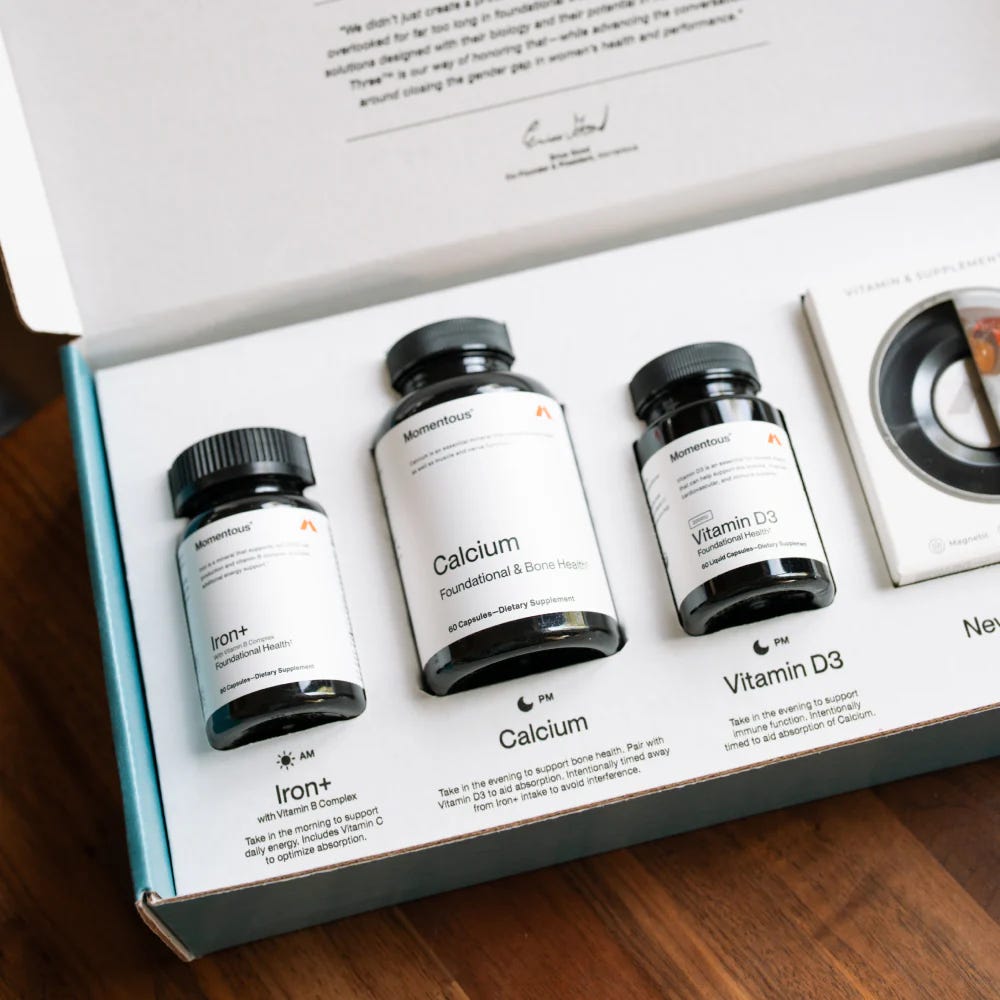Neuro Athletics is a twice-weekly newsletter designed specifically for high-performing men and women who want science-backed strategies to optimize brain health, performance, and longevity. Subscribers include executives, coaches, professional women, health-conscious mothers, and women dedicated to peak cognitive and physical performance. If you're not already subscribed, join 69,000+ people who receive actionable insights directly in their inbox each week.
Story at a Glance:
40% Lower Risk: Vitamin D supplementation linked to 40% lower dementia incidence in a 10-year study of 12,388 adults.
Women + Early Action = Biggest Wins: Nearly 50% risk reduction in women, and 56% in those with no baseline cognitive issues.
Mechanism Matches Outcome: Vitamin D modulates amyloid, tau, neuroinflammation, oxidative stress, and neurotrophic growth.
Neuro Athletes,
There are few things in medicine more frustrating than seeing a cheap, safe, and widely available intervention sit on the shelf—ignored—while complex, expensive solutions get all the attention.
Vitamin D might be the best example of that problem.
We’ve known for decades that vitamin D is essential for bone health. But new data now suggest it may also play a crucial role in brain aging, cognitive resilience, and even dementia prevention.
And the numbers aren’t subtle.
Today’s Newsletter Is Brought To You By Momentous
Most supplements treat symptoms. Momentous builds systems.
The Women’s Three™ isn’t a multivitamin—it’s a foundational protocol designed with Dr. Stacy Sims. It targets three essentials most women are missing: Iron, Calcium, and Vitamin D3—for energy, brain health, bone strength, and hormonal support.
Smart AM/PM dosing improves absorption and avoids interference—Iron in the morning, Calcium and D3 at night.
NSF Certified for Sport®, built on The Momentous Standard™, and backed by a $500K commitment to female-focused research.
Real science. Real results. For real women.
✅ Use code NEURO at livemomentous.com/louisa for 35% off your first subscription.
A 40% Risk Reduction in Dementia: The Data That’s Hard to Ignore
A 2023 observational cohort study tracked 12,388 adults (average age ~71) over 10 years, using data from the U.S. National Alzheimer’s Coordinating Center.
What they found should’ve made front-page news:
Those taking vitamin D supplements had a 40% lower risk of developing dementia.
84% of supplement users remained dementia-free after 5 years, compared to just 68% of non-users.
The risk reduction was even greater in women (49%) and those with normal cognition at baseline (56%).
That’s not a minor effect. That’s massive—especially for an over-the-counter supplement costing a few dollars per month.
Hazard Ratio: 0.60 (95% CI: 0.55–0.65).
Translation? A 40% reduction in risk, even after adjusting for age, sex, race, depression, education, and APOE-e4 status.
And yes, even APOE-e4 carriers, the highest-risk genetic group for Alzheimer’s, saw a benefit—a 33% risk reduction. For non-carriers, it was 47%.
Let that sink in. A non-prescription, low-cost supplement may offer almost as much benefit as any pharmaceutical intervention we have today for cognitive decline.
But… It’s Just an Association, Right?
Correct. This was not a randomized controlled trial (RCT). It’s observational. That means we can’t prove causation.
But let’s be clear—this is not “soft” epidemiology. The cohort was large. The follow-up long. The adjustments robust. And the effect size—again—was not subtle.
Still, we can’t rule out confounding. Maybe people who take vitamin D also eat better, sleep more, exercise, and have better healthcare. But if that’s the argument, then we’re basically saying people who care for their health don’t get dementia as often. Which… is true. But incomplete.
To truly test causality, we’ll need randomized data. That’s what the VitaMIND trial and others aim to address. But in the meantime, this is compelling enough to act on.
And that’s not a controversial statement. It’s good medicine.
Why Is Vitamin D So Important for the Brain?
Mechanistically, the evidence checks out. Vitamin D isn’t just about calcium metabolism. It has neurotrophic, anti-inflammatory, and antioxidant effects that directly impact the brain.
Here’s what it’s doing under the hood:
Reduces amyloid-beta accumulation (linked to Alzheimer’s).
Inhibits tau phosphorylation, reducing neurofibrillary tangles.
Modulates microglial and astrocyte activity, reducing neuroinflammation.
Boosts BDNF and nerve growth factor—crucial for synaptic plasticity.
Reduces oxidative stress by upregulating glutathione and catalase.
And that’s not theory—it’s supported by animal studies, in vitro research, and human brain imaging showing slower brain atrophy and improved MRI markers in people with higher serum vitamin D levels.
In fact, vitamin D deficiency correlates with brain shrinkage, particularly in the hippocampus.
Who Benefits the Most?
This isn’t one-size-fits-all. The study broke it down by subgroup:
All were effective. D3 is generally preferred for absorption and half-life, but if you’re already taking calcium for bone health, the combo is a two-for-one deal.
So... Should You Supplement?
If you’re over 50, live in a northern latitude, have darker skin, avoid the sun, or wear sunscreen daily, chances are your vitamin D is suboptimal. Up to 70% of Americans are deficient or insufficient.
That matters. Because the earlier you correct it, the more benefit you may see for your brain—especially if you're female or genetically predisposed.
No supplement is a silver bullet. But vitamin D might be as close as we get for now.
Especially when the “risk” is $10/month and a blood test.
Too often, public health waits for perfect evidence while people suffer preventable outcomes. That’s not conservative. That’s reckless.
Vitamin D is not a fad. It’s not biohacking nonsense. It’s biology.
If you're not monitoring and optimizing your vitamin D levels—especially in midlife—you’re potentially missing out on the most accessible brain-protective intervention available today.
The science is catching up. But the action is yours.







What would you consider an optimal lab result on Vitamin D?
This is a great article! Let’s also not forget that endogenous vitamin D is produced in our bodies just by sitting in the sun. Supplementation is a great idea but natural sunlight even has other benefits besides vitamin D. Definitely gonna look into including vitamin D into my daily routine now!